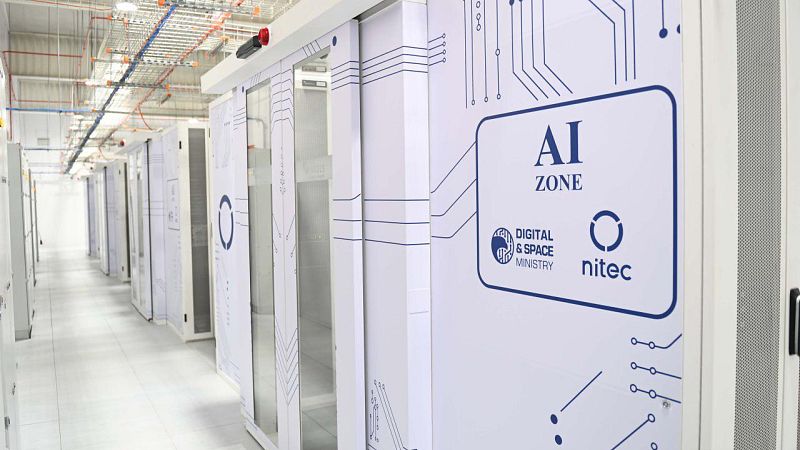Kazakhstan’s Ambitious Leap into the Supercomputing Era
Kazakhstan has taken a significant step in the global race to build advanced supercomputers. The country has unveiled its most powerful computing system in Central Asia, capable of performing approximately 2 exaflops—equivalent to two quintillion (10^18) floating-point operations per second. This state-of-the-art machine was launched at the Alem.cloud supercomputer centre in the capital city, Astana.
The supercomputer serves two primary purposes: enhancing e-government services and advancing artificial intelligence (AI) development. These initiatives have been central to the government’s long-term strategy. President Kassym-Jomart Tokayev, who has been a strong advocate for AI, personally activated the machine during its launch. His vision is clear: by 2029, Kazakhstan aims to be on par with global leaders in AI technology.
At the event, the president emphasized that the launch marks a critical milestone in the digital transformation of key economic and scientific sectors. He highlighted the potential for this technology to drive innovation in everyday life and support the development of advanced technologies.
A Strategic Investment in Digital Infrastructure
Experts like Boris Potapchuk, Senior Expert at Nazarbayev University, view the project as an image-boosting initiative. By showcasing access to modern technology, Kazakhstan is positioning itself as a forward-thinking nation in the international arena. The AI cluster will enable more efficient use of state resources and budgets by centralizing dispersed information systems, making data more accessible and secure for citizens.
However, the country has faced challenges in data security. Recently, a major data breach was uncovered, potentially affecting the personal information of 16 million citizens. The Ministry of Digital Development is investigating the incident, which involved sensitive details such as names, identification numbers, birthdates, addresses, and phone numbers from non-governmental databases.
Despite these hurdles, Kazakhstan has made strides in digital governance. Since 2004, the country has digitalized 92% of public services. Over eight million citizens now use digital signatures and e-government services daily. According to the 2024 UN E-Government Development Index (EGDI), Kazakhstan ranks 24th out of 193 countries.
Focusing on AI Development
The government’s focus remains on AI. In 2024, a draft law on AI was approved, and an AI committee was established to oversee its development. Experts and politicians agree that local solutions and infrastructure are essential for future success and national sovereignty.
One of the key projects associated with the supercomputer is the Kazakh language model of AI, known as AlemLLM. This initiative addresses concerns about the potential extinction of non-Western languages due to heavy AI utilization. Kazakhstan is investing in localized AI models to preserve linguistic heritage and ensure technological independence.
Challenges and Opportunities
Waqar Ahmad, President of Nazarbayev University, emphasized the importance of the supercomputer in developing advanced AI models. He mentioned that new systems are being developed for voice recognition, image processing, and other applications. These models are expected to integrate multiple modalities, including text, sound, and images.
However, Boris Potapchuk expressed doubts about whether the supercomputer will primarily be used for training new AI models or applying existing ones. He pointed out that venturing into new AI solutions presents both opportunities and challenges, revealing weaknesses in current capabilities.
Addressing the Brain Drain
A major challenge for Kazakhstan is the brain drain, particularly in IT and technical fields. Potapchuk noted that maintaining and modernizing the supercomputer requires highly skilled specialists. To address this, the country needs to invest in training and retaining local talent.
He also highlighted that foreign experts will not be allowed to handle sensitive data, similar to restrictions in other critical sectors like oil and gas. Despite these limitations, the government sees the supercomputer as a crucial first step toward building a competitive AI ecosystem.
A Vision for Technological Sovereignty
Minister Zhaslan Madiyev emphasized the importance of digital development for national sovereignty, comparing it to energy and food security. The launch of the national supercomputer center is seen as a strategic move to establish a self-sufficient AI ecosystem capable of competing globally.
As Kazakhstan continues its journey in the supercomputing and AI domains, the road ahead is filled with both promise and challenges. The country is determined to leverage its new capabilities to shape a future where technology and sovereignty go hand in hand.






